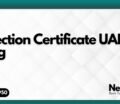
Dubai, a global hub for trade and business, offers immense opportunities for entrepreneurs venturing into the foodstuff industry. With its strategic location, state-of-the-art infrastructure, and thriving economy, Dubai is an ideal place to establish a foodstuff trading business. If you are considering entering this lucrative market, obtaining a foodstuff trading license in Dubai is the first step. This article provides a step-by-step guide to help you navigate the process, ensuring compliance with local regulations and maximizing your chances of success.
Why Choose Dubai for Foodstuff Trading?
Dubai’s vibrant market offers endless opportunities for foodstuff businesses. The city’s diverse population, growing tourism sector, and demand for high-quality food products create a thriving environment for traders. Additionally, Dubai serves as a gateway to the Middle East, Africa, and Asia, making it a strategic location for importing and exporting food products.
Some benefits of starting a foodstuff business in Dubai include:
- Tax benefits: Zero personal and corporate tax policies.
- Strategic location: Access to major global markets.
- State-of-the-art infrastructure: Advanced logistics and warehousing facilities.
- Ease of doing business: Streamlined processes and government support.
Steps to Secure Your Foodstuff Trading License in Dubai
To legally operate a foodstuff trading business in Dubai, obtaining the necessary licenses and approvals is essential. Follow these steps to ensure a smooth process:
Choose the Right Business Activity
The foodstuff industry encompasses various activities such as import, export, packaging, and distribution. Identify the specific activities you plan to undertake and ensure they align with the license requirements.
Select a Business Jurisdiction
Dubai offers three main jurisdictions for business setup: Mainland, Free Zone, and Offshore. Each has its own set of regulations and benefits:
- Mainland: Ideal for businesses targeting the local market.
- Free Zone: Offers tax exemptions and 100% ownership but limits local trade.
- Offshore: Suitable for international trade and holding companies.
Choose a Company Structure
Decide on the legal structure of your business, such as:
- Sole proprietorship.
- Limited Liability Company (LLC).
- Branch of a foreign company.
Register Your Trade Name
Select a unique trade name that complies with Dubai’s naming conventions. Ensure it reflects your business activity and avoid any restricted words.
Apply for Initial Approval
Submit an application to the Department of Economic Development (DED) or the relevant Free Zone Authority for initial approval. This step confirms that your business idea is in compliance with Dubai’s regulations.
Secure External Approvals
Foodstuff trading involves additional approvals from regulatory bodies such as the Dubai Municipality or the Food Safety Department. These organizations ensure compliance with food safety standards.
Lease a Business Premises
Secure a physical location for your business. Depending on your activities, this could include an office, warehouse, or storage facility. Obtain a tenancy contract registered with Ejari.
Obtain Your Foodstuff Trading License
Once all approvals are in place, apply for the foodstuff trading license in Dubai. Submit the required documents, including:
- Passport copies of shareholders.
- Trade name approval certificate.
- Initial approval from the relevant authorities.
- Lease agreement.
Register with Customs
For businesses involved in import and export, registering with Dubai Customs is mandatory. This allows you to smoothly clear goods through customs and manage logistics.
Open a Corporate Bank Account
Finally, open a business bank account in Dubai to facilitate financial transactions. Choose a bank that offers services tailored to your business needs.
How to Start a Foodstuff Trading Business in Dubai?
Starting a foodstuff trading business in Dubai involves more than just securing a license. Here’s a detailed breakdown of the process:
Conduct Market Research
Understand the market demand, target audience, and competition. Identify popular food categories such as fresh produce, packaged goods, or frozen items.
Draft a Business Plan
Prepare a comprehensive business plan outlining your objectives, target market, financial projections, and marketing strategies. A well-drafted plan is crucial for securing funding or attracting investors.
Ensure Compliance with Food Safety Standards
Dubai has strict food safety regulations to ensure the quality and hygiene of food products. Partner with reliable suppliers and implement proper storage and transportation practices.
Build a Strong Distribution Network
Establish relationships with retailers, wholesalers, and distributors. A robust distribution network ensures your products reach the market efficiently.
Leverage Digital Marketing
Promote your foodstuff business in Dubai through social media, search engine optimization (SEO), and online marketplaces. Highlight your unique selling points, such as quality, price, and delivery.
Participate in Trade Events
Attend food exhibitions and trade shows in Dubai to showcase your products, network with industry professionals, and explore new opportunities.
Key Documents Required for Foodstuff Trading License
Here is a list of essential documents needed to apply for a foodstuff trading license in Dubai:
- Passport copies of shareholders and managers.
- Visa copies and Emirates IDs (if applicable).
- Trade name reservation certificate.
- Initial approval certificate.
- Memorandum of Association (MOA).
- Lease agreement (Ejari).
Benefits of Securing a Foodstuff Trading License in Dubai
Securing a foodstuff trading license in Dubai comes with numerous advantages that make it a lucrative venture for entrepreneurs. Here are some of the key benefits:
- Access to Global Markets: Dubai’s strategic location facilitates trade with over 200 countries, making it an ideal hub for food imports and exports.
- Favorable Tax Policies: Dubai’s tax-free environment ensures higher profit margins for businesses.
- Advanced Logistics: The city offers world-class ports, airports, and storage facilities, enabling seamless operations.
- Ease of Business Operations: Transparent regulations and streamlined procedures make it simple to start and manage a business.
- Growing Demand: The diverse population in Dubai drives a consistent demand for various food products.
- Opportunities for Expansion: The ability to trade within the UAE and across international markets provides vast growth potential.
- Supportive Government Policies: Dubai’s government actively supports businesses through incentives and initiatives to boost economic growth.
Cost of Foodstuff Trading License in Dubai
Obtaining a foodstuff trading license in Dubai involves several cost considerations. The average cost ranges between AED 12,000 and AED 25,000, depending on the jurisdiction and the specific requirements of your business. Here is a breakdown of the major expenses:
- License Fees: This is the primary cost and varies based on whether you set up in the Mainland or a Free Zone. Mainland licenses tend to have slightly higher fees but provide access to the local market.
- Visa Costs: Depending on the number of employees, you will need to factor in visa application fees for yourself and your staff. Each visa typically costs between AED 3,000 and AED 7,000.
- Office or Warehouse Rent: Leasing a commercial space is mandatory. Rent varies depending on the size and location of your premises. Office space may cost AED 10,000 to AED 50,000 annually, while warehouse facilities can be higher depending on your storage needs.
- Customs Registration: If your business involves importing or exporting food products, you must register with Dubai Customs. The registration fee can range from AED 1,000 to AED 3,000 annually.
- Additional Approvals: Approvals from Dubai Municipality, the Food Safety Department, and other regulatory bodies may incur extra costs, depending on your business activities. These fees range between AED 2,000 and AED 5,000.
- Miscellaneous Costs: Other expenses may include insurance, IT setup, utilities, and transportation.
Conclusion
Securing a foodstuff trading license in Dubai opens the door to a world of opportunities in one of the most dynamic markets globally. By following the outlined steps, adhering to regulations, and leveraging Dubai’s strategic advantages, you can establish a successful foodstuff business in Dubai. To simplify the process and ensure compliance, partner with GCS (Gulf Corporate Services). Our team specializes in providing expert business setup services in Dubai, guiding you every step of the way to make your entrepreneurial journey seamless and successful.








